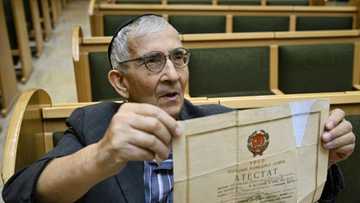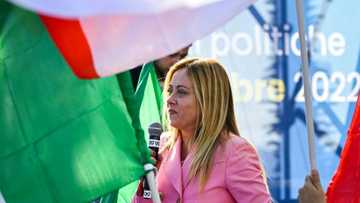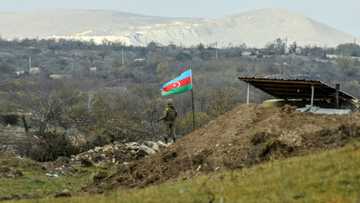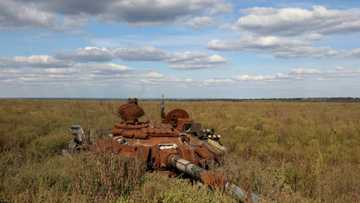In Bulgaria, Russophiles celebrate Putin
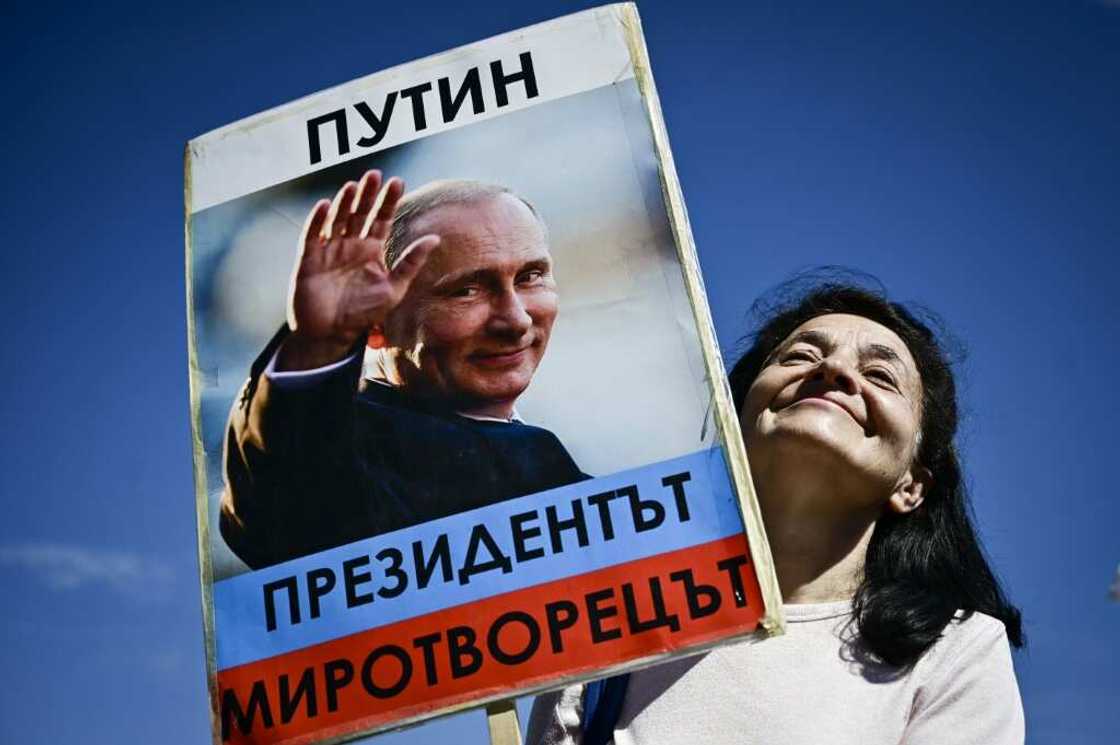
Source: AFP
PAY ATTENTION: Сheck out news that is picked exactly for YOU ➡️ find the “Recommended for you” block on the home page and enjoy!
Wearing T-shirts showing Russian bears, waving flags with "Z" symbols, and holding pictures of Putin aloft -- the Ukraine war has not deterred Bulgarian Russophiles, who rallied in the centre of the country on Sunday to show their support.
The Balkan state -- an EU and NATO member with historically close ties to Russia -- still has many citizens nostalgic for the former Communist regime.
The pro-Moscow rally came as Sofia readies to return to the polls and the country grapples with its identity.
Hristo Ganev, a 60-year-old driver, had arrived at Sunday's event early and bought a T-shirt emblazoned with the "Z" of the Ukraine offensive from one of the many stalls selling trinkets and souvenirs.
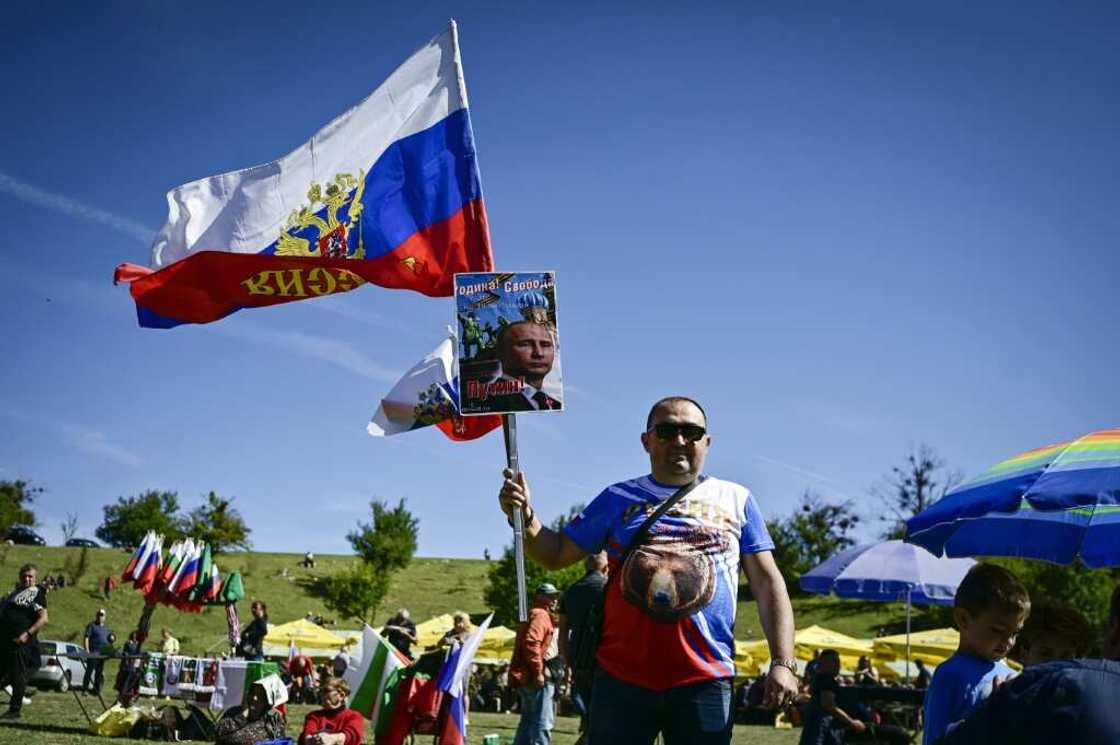
Source: AFP
PAY ATTENTION: Subscribe to Digital Talk newsletter to receive must-know business stories and succeed BIG!
"Without Russia, Bulgaria would not have existed," he told AFP, referring to the Russo-Turkish war of 1877-1878, in which Russia freed Bulgaria from five centuries of Ottoman domination.
Ganev is married to a Russian he met when he was working in Siberia in the 1980s, and says he supports President Vladimir Putin's invasion of Ukraine.
He believes Putin's claim that the troops are needed to "fight Nazism" and says he is even in favour of a nuclear war, "if that is the price to pay to free yourself from American domination".
'Like loving your sister'
Unlike in most other European countries, regular pro-Russian rallies have been held alongside pro-Ukrainian gatherings.
Sunday's event was due to be held on the shore of Lake Koprinka -- but the local mayor refused to host it due to the sensitivities of the Ukraine war.
Instead, it took place half an hour away in a mountainous spot overlooking the town of Kalofer.
"It's the only free gathering in the world," said Nikolay Malinov, the leader of the organisation that brings together Bulgarian Russophiles.
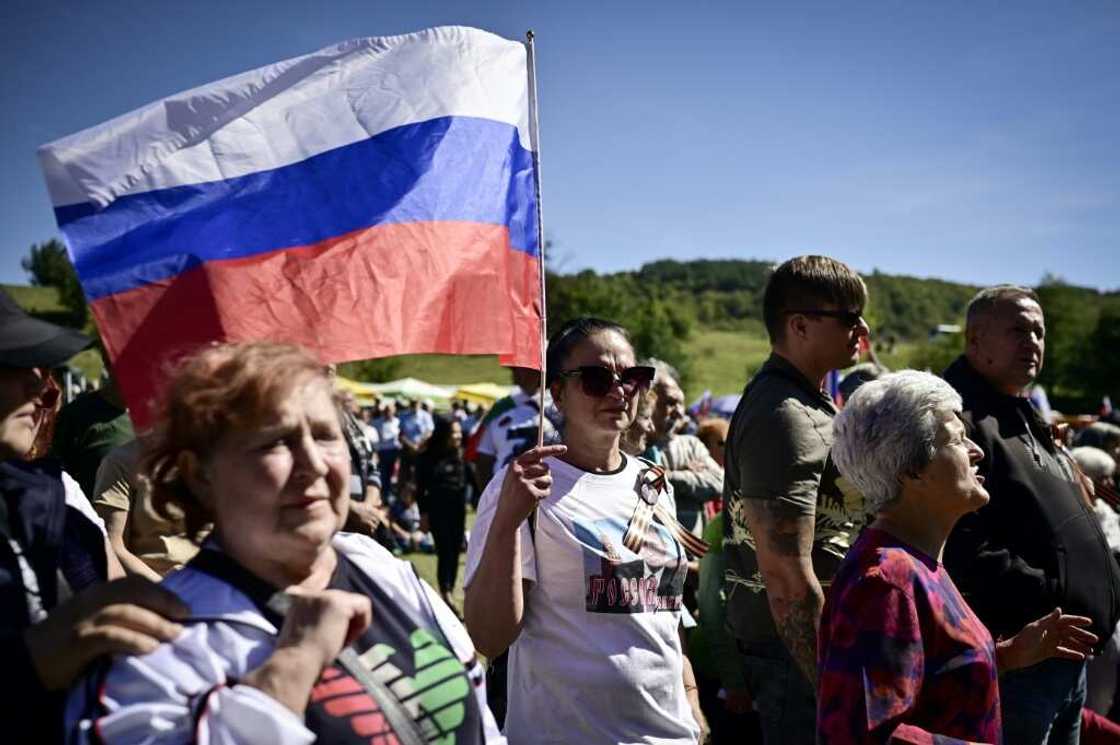
Source: AFP
Bulgarian prosecutors in 2019 accused Malinov of spying for Moscow -- the same year Putin decorated him with a state award, the Order of Friendship.
His idea of bringing together Bulgarians in an "international Russophile movement" also gained the approval of Sergei Lavrov -- Russia's foreign minister -- when the two men met recently in Moscow, he said.
"For Bulgarians, loving Russia is like loving your sister, your mother," he told the crowd on Sunday to wide applause.
Among the youngest to join the rally was 17-year-old Georgi Ivanov, who was wrapped in a flag honouring Soviet leader Joseph Stalin.
"I appreciate authoritarian regimes because they guarantee unity without worrying about ethnic and sexual minorities," the high school student said, saying he didn't believe claims that Russian troops have carried out war crimes in Ukraine.
Deadlock
Most middle-aged Bulgarians studied Russian in school, understand the language and some regularly follow Russian news.
The two countries share close cultures, with the Cyrillic alphabet and Orthodox Christianity.
In the Communist years, Sofia was considered Moscow's staunchest ally.
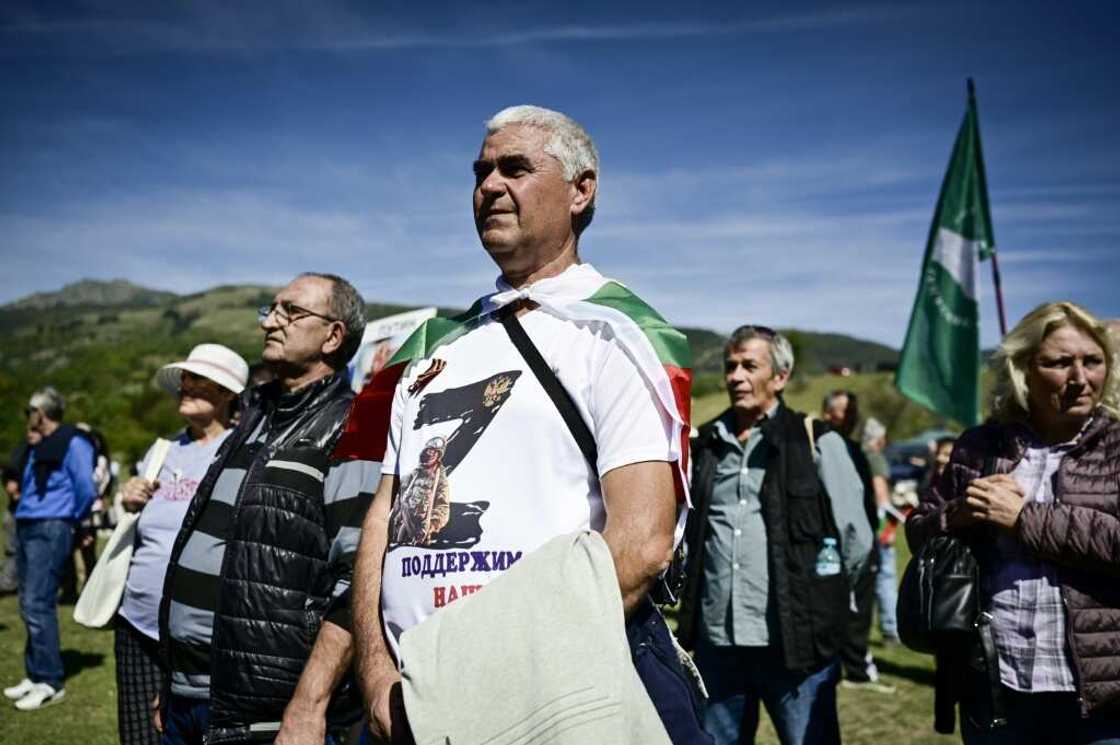
Source: AFP
One attendee in her seventies, who gave her name as Veneta, was carrying a banner supporting the referendums on joining Russia being carried out by pro-Moscow authorities in four Ukrainian regions.
She would welcome the same opportunity in Bulgaria, she told AFP.
A poll carried out in April found that nearly half of Bulgarians considered that Russia was not responsible for the situation in Ukraine, and many did not support the delivery of arms to Kyiv.
And a week before new legislative elections, many have concerns about the country's political direction.
"It is unfortunate that Bulgarians, who are largely Russophiles, have let themselves be governed by a handful of pro-Westerners," said 66-year-old Tatiana Ivanova, a Russian who has lived in Bulgaria for four decades.
Staunch pro-European Prime Minister Kiril Petkov will seek to return to power in the upcoming election on October 2.
He won the last ballot in November 2021, but his cabinet was overthrown by a motion of no-confidence in June.
The conservative Boiko Borissov, who led the country almost continuously between 2009 and 2021, is the contender almost certain to win.
But analysts warn that he may have difficulty building a coalition, and some are predicting another poll in the months to come.
Source: AFP


